The best walks become a part of you, don’t they? I live on the west cliff of town. Most days, I drift down to the harbour and then up to the bandstand on the eastern cliff. It’s old now, but was a fighter in its youth; in the last war, it housed a cannon that pointed way out towards the channel. These days, its chief invaders are tourists and hollyhocks. In the summers, it becomes festooned with both. But it’ll be able to untangle itself soon; on yesterday’s visit, I noticed that the triffid-like flowers were dying back. The sky was grey, too- the first dark day for weeks. I couldn’t see a holidaymaker anywhere. The cold season is a way off yet, but it’s coming.

The winters are much quieter here and I love them for that; they remind me of what the summers were like twenty years ago, before the gentrification process got under way. I don’t blame the city people for coming, though; one way or another, most of us got here via the metropolis. My nan was London Irish, and a true Cockney, born within the sound of the Bow Bells. She soon gave all that up when she saw the sea. As did my father, he grew up in Coventry and never even saw the ocean until he was seventeen. These days, he couldn’t live anywhere else. Neither could I- despite trying. When you grow up next to a vacuum, it sucks you in. In that respect, the English Channel is no different from the Great Plains or the Rocky Mountains. The landscape bleeds into you.
And in return, you bleed a little back.
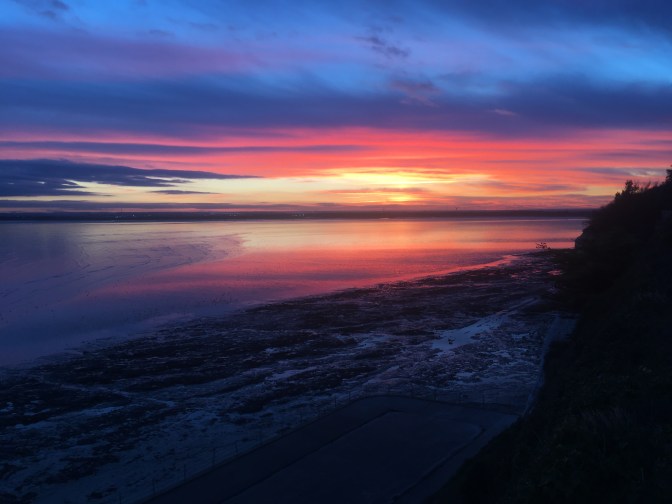
When I was fourteen my dad caught the largest eel I’ve ever seen, in the bay just down from our house. It had silvered in the estuary and by the time my father met it, it must have been nine or ten pounds; its carcass was in the bath when I got home from school one day. We ate heartily for days but later felt guilty when we discovered how old the creature was. An eel can age ten years for every pound or so it weighs. It was possible that this eel swam into local waters at the turn of the twentieth century- maybe even before. My father quit angling and has only taken a rod out once or twice in the three decades since. Later, when I was seventeen, a similar thing happened to me when a young killer whale washed up in our bay and died. For reasons that deserve another entry, I stopped fishing for some time.
I still walk the coast adjacent and the cliffs above where the orca came to rest. In the summer time, I like to come blackberry picking here. Due to the heat (we got to almost forty degrees in Pegwell in July) we’ve already had two or three big harvests and it’s only just past mid-August. I’ve frozen some, to add to an English Summer Trifle recipe I found. The rest are being rationed into my morning porridge.

I bass fish all this coast, too. I’m finally doing a little more of this each year. Bass were my first fish but I didn’t chase them enough in my twenties and thirties. Then, there was the land to consider. There was always another river or one more pond. There always will be, to be fair. But I’m glad to be doing more beachcasting again. When I’m alone with a rod on Pegwell Bay, I feel like last man on the earth. I just wish I could catch some bigger bass. Despite thirty-two years of trying, I’ve never landed a real monster but I do consistently catch some nice table fish. My best this season was a little over 50 cms.
Move arrows to show landscape shot in full:

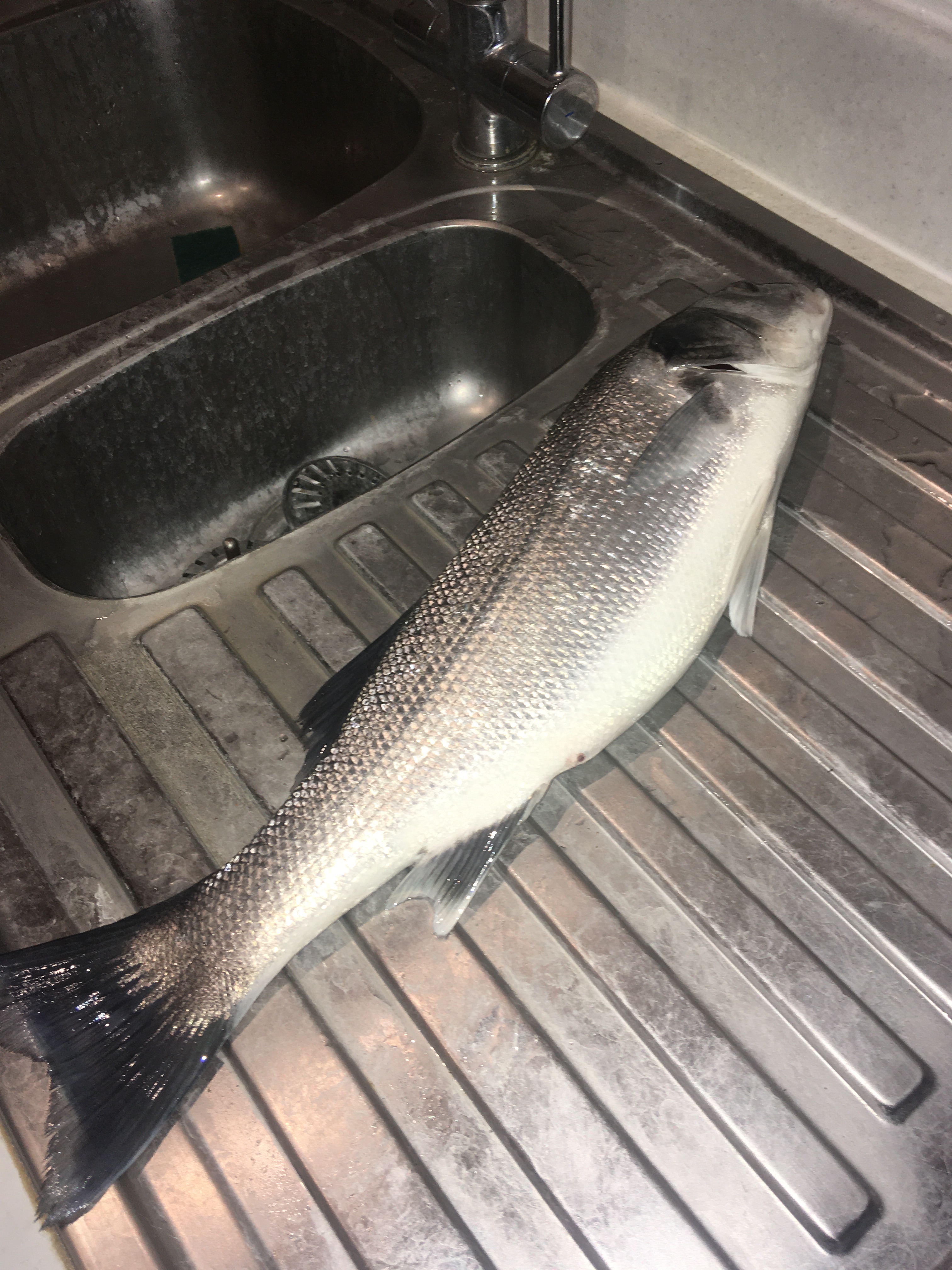
My early season was cut short a little this year. I caught covid in mid-spring. I don’t think I’ve ever been so tired. By the time I recovered my wits, it was early summer and time for my favourite walk of them all- the clifftop trail that leads west out of Pegwell Village, down to the abandoned hoverport. In the spring and autumn, the old port itself can be a wonderful place to go owl hunting. But in midsummer, the chief sport is provided by the butterflies. The open paths, parallel to the cliff farms, are lit up by legions of ambling Gatekeepers. The brambled passes, with trees overhead, are haunted by gangs of Speckled Woods; the male speckleds seem to use every light patch available to spar with one another until a female comes along. Brown butterflies are earth spirits; our ancestors believe they help you to move from one stage in your life to the next. As I got over covid, I spent a lot of afternoons stalking these creatures up and down the clifftop way. The ancients are on to something; each subsequent sighting made me feel lighter and more energised.
Click to enlarge images:
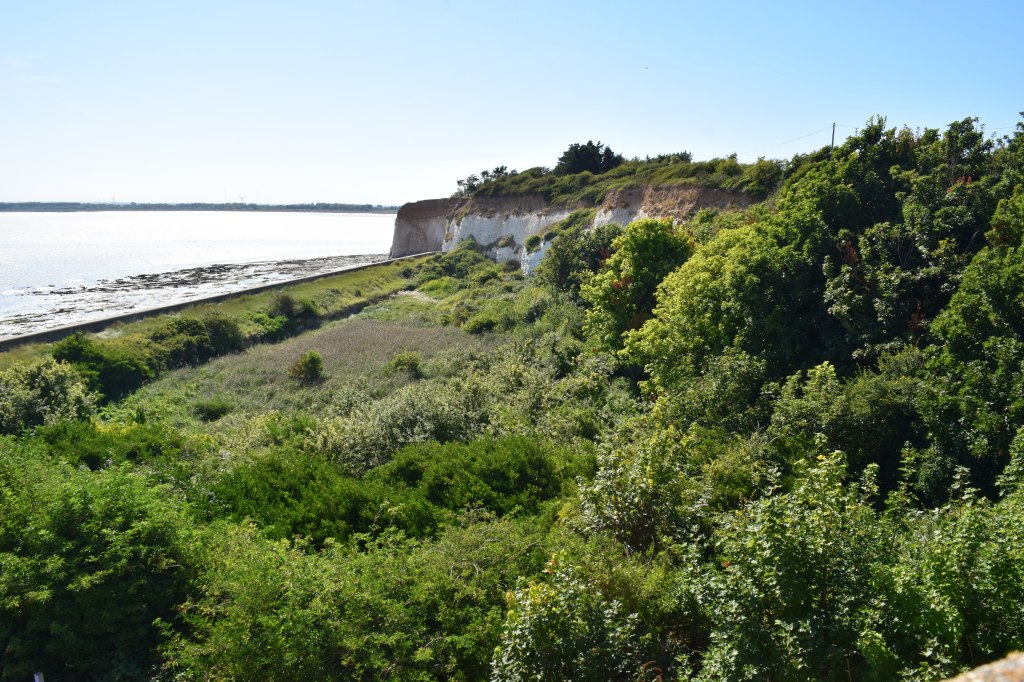
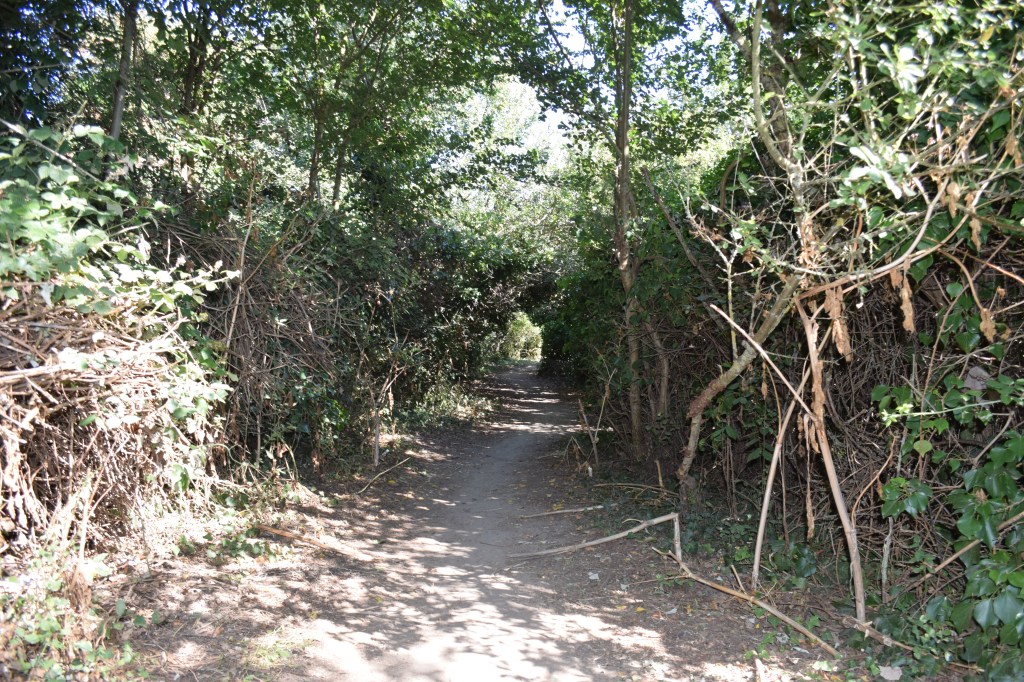
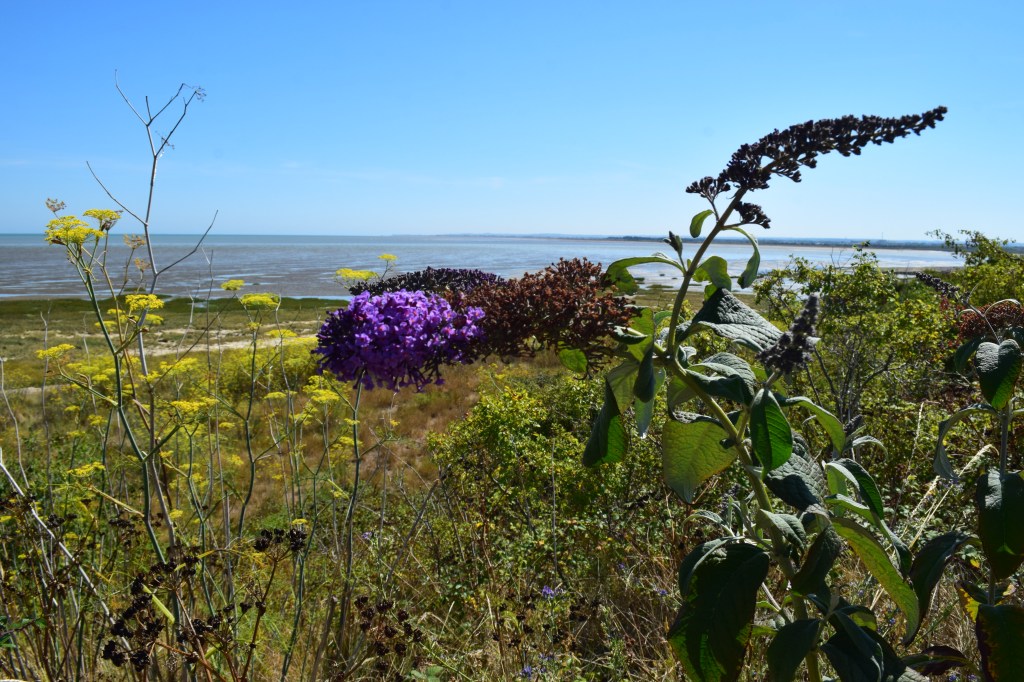


Eventually, when each summer reaches its zenith, my coarse fishing year begins. I travel beyond Pegwell and start to wander about the other side of the bay, towards where my grandfather mined. These past few years, my chief targets have been the coastal drains and some of the old ponds left over by industry or from dyke-building. One of the largest ponds is now part of a commercial complex, to the west of my grandfather’s first colliery. It contains huge, wild pike. They’re unstocked by the management and for many years, they tried to cull them. Realising that’s impossible, they now encourage winter anglers to fish for them. I caught my largest pike ever from the same pool. By contrast, the smallest pond on all the marsh is about twelve feet long by six feet wide. It lays between two sections of an old stream and is often full of small perch. As such, it’s the perfect place to bring my pupils. My current school stands a few miles north of here, on marshland east of Minster village. Not that the children need to leave the school to get a wildlife fix- the grounds are just incredible. We share them with wild mink, kingfishers, barn owls, weasels and lizards. There are pike, too, in the drain that runs at the back of the school but they appear stunted, unlike the kingfishers, who do very well along this stretch.
Click to enlarge images:

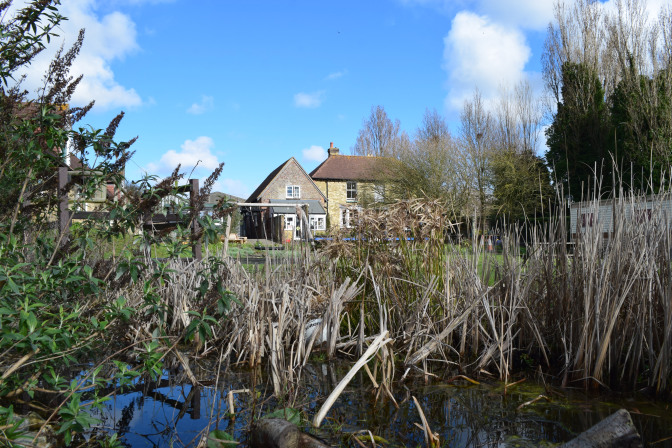

By far the best sport to be had is in the the small, semi-saline streams that stretch into the countryside beyond the Stour Estuary, at Sandwich. I can see all this landscape from my local pub, which stands atop the cliff near my flat. From here, I can make plans and drift into hawkish fantasies about the next day’s swoop down onto the marshes. In the summer, my dream species are tench. This year, I went out to possibly the most idyllic-looking tench spot in all England.
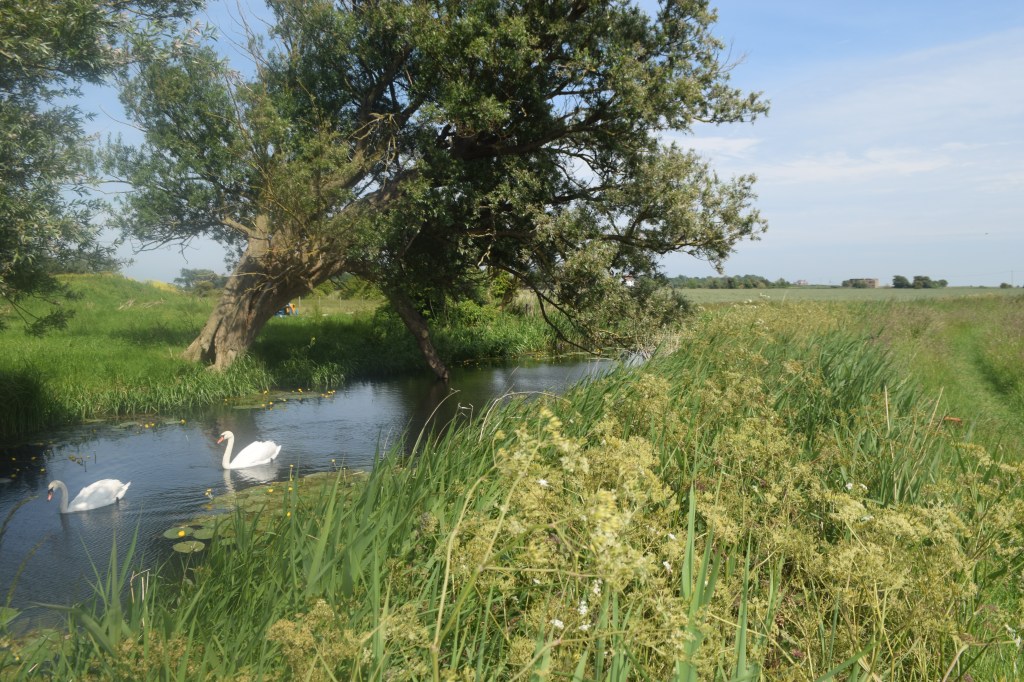
The fishing here is free and uncontrolled by any of the local clubs or associations. The hotspots involve a little bit of walking, which is wonderful as most modern anglers won’t walk very far; this means that I’m usually all alone out here. In this regard, it forms a parallel with my beach fishing over at Pegwell Bay. It’s an inverted world, really, where you swap the silver surf for green lilies and samphire for the chamomile that grows so freely all over the marsh. I’ve met more people foraging for the latter than I’ve encountered anglers. There are hardly any of us and that’s not likely to change; truth be told, the fishing is not all that easy. The fish grow large out here and most live out their time without ever being caught; in some regards, you might think this lack of human intervention would make them easier to catch. But it doesn’t. Most grow hypersensitive to any change in their immediate environment. These creatures are grand trophies but most modern anglers simply don’t have the time.
A couple of years ago, I brought my friend Josh out here; he’s the best fly fisher in this part of the world and has already caught larger pike than I have. To the best of my knowledge, I’ve done the best with the tench and perch. But Dylan Wrathall is the man who’s taken the biggest pike and carp. Other than these two men, I’ve encountered a few other chaps but they come and go. Nobody stays. The fish are the same, too. They’re nomads, which makes the fishing all the more compelling; there are so many permutations to each new goal you set and so it was with my annual tench pilgrimage this year.
In early June, I chose a new patch, just south of where I’ve done a lot of winter pike fishing. The stream itself shall remain unnamed but is a part of Kent’s last remaining fenland. The surrounding marsh encompasses several hundred acres but it used to be bigger still; in the middle ages, this area rivalled the Norfolk fenlands. The old Kentish names still mark out key parts of the stream; they too shall remain safely anonymous. But I will share that I found three huge tench frequenting my chosen spot.
Initially, I saw just one. Returning the next day after school, I took a weed rake with me. You need one of these to fish here; the entire system is convoluted with water cabbage and cable weed. Unless you clear a spot, your bait won’t reach the bottom; the vibrations also call the tench in. I bought mine from a fellow named Jake, who sells them online. He’s a builder and apparently a mad keen tench fisherman in his free time; it’s a much stronger rake than some of the previous contraptions I’ve owned and I was lifting out my third clump of weed when I noticed some movement in the corner of my eye.
Looking upstream to my right, I saw three tench of eight pounds apiece; they behaved very strangely indeed. The lead tench (and there usually is one) surfaced and nosed the ripples that I’d created with the rake. It was then that I turned and looked. It was around nine ‘o’ clock and the sun’s final rays resembled something akin to a dying fire; as I observed, the tench’s tail fins seemed to flicker in the dying embers of daylight. The chief submerged and barged his closest comrade in the flank. All three then bolted upstream, very fast. In a second, they were gone- hidden by the secret network of underwater weeds and lily stalks.

I saw these tench (I nicknamed them ‘The Three Amigos’) many times over the successive, sultry weeks. When the season started on June 16th, I tried my best to capture them, too…
I failed. They rejected every piece of bait that I threw in for them. However, in the long length of time I put into trying to catch these three fish, I observed other species arrive and eat the food that the tench didn’t want. First all of pike. Several jacks turned up and started to eat any worms that I threw in. The most thrilling part of fishing a place like this is that the water is gin clear. Once you’ve removed some weed and fashioned yourself a spot amidst the reeds (this takes a minimum of two or three sessions in itself), you then have a ringside ticket to the underwater world. You arrive, throw some bait in, then hide. At some points, I managed to get myself to within inches of deep water; one day, I came almost nose-to-nose with a pike that was striped like a tiger. It was a bit bigger than a jack, and I’m hoping to catch it next winter.
After about three weeks, the tench left and never came back. But in their stead, there entered a family of wild carp- all of which weighed more than ten pounds. The carp are a rare treat on these levels; in the six or seven years I’ve been out here, I’ve only seen a few and never in these reaches. A couple of years ago, my friend Dylan took some; they were all commons (I don’t know if mirror carp exist out here; I have only ever seen commons) and their flanks were stained a beautifully dark, tree bark brown. There is very little chance that a carp caught here would have ever seen fishing tackle. Nonetheless, they hated any evidence I left of mine. Initially, I attempted to catch them using the float rigs I had set up for the tench. This was not successful; the carp would not tolerate the vertical line running down from the float to the drain floor. I watched time and again as they rubbed up against it and subsequently bolted away in horror, back into the weeds. Eventually, I used up my credit. The whole tribe followed the tench and moved on.

At first, I gave up. But when the school summer holidays started, I returned and walked south, a little further upstream. I found a beautiful spot overlooking barley fields to my east; to my west, the marshlands seemed to run forever, punctuated here and there by the lights of the odd village or two. From here, a bird could fly virtually in a straight line west all the way to Surrey. It might have to deviate by the smallest margin to skim past Canterbury, Maidstone and Sevenoaks but then it would be be straight across the border and enjoying the delights of the Surrey Hills. It’s easy to forget that Kent to this day is still 85% rural. The land belongs to the birds, far more than it does to us.
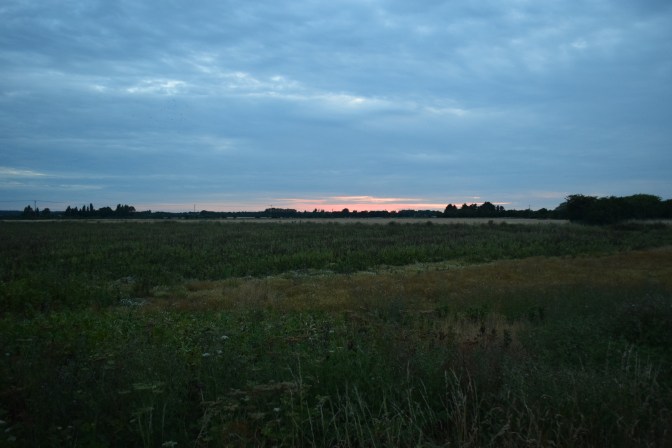
The water very much still belongs to the fish. In my mind, I marked the exact spot by looking dead south upriver and noting some features. At eleven ‘o’ clock upstream from the beat, there was a giant stack of hay bales. At this time of the year, these can be handy for orienting yourself. At one ‘o’ clock to my position, there stood in the distant south-west a rather nebulous looking windmill. After I first spotted it, I couldn’t find it the next time I came. For a short while, I honestly thought that I’d dreamt it. Deep within the confines of carp fever, it wouldn’t be the first time something like that had happened. But then I realised that my chosen spot looked slightly different; I shuffled upstream until things looked just right. Taking my binoculars out and looking south-west into the dawn mist, the windmill appeared again, right on the edge of the horizon. In this particular part of the countryside, I now realise that the windmill can only be seen from a twenty or thirty yard field of vision. If you’re not standing in the right area with a pair of binoculars, then you may never know it exists.
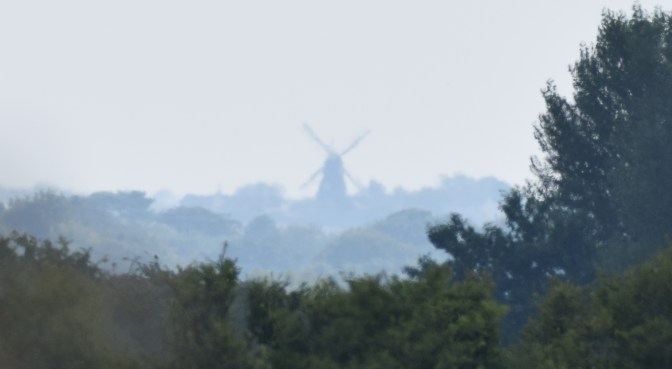
I still don’t know exactly where this windmill lies. I’ve pinpointed roughly where it should be on the O.S map and on Google Earth; I don’t want to google a list of local windmills. That doesn’t seem as fun as trying to find it myself. In the autumn, I’ll drive out and take a close-up photograph of it.
Or maybe I won’t?
From a distance, it possesses a spooky, diaphanous beauty, like a ghost from the old world. You can overexpose yourself to magic and then it loses its lustre. It’s the same for all things; above all, angling. But I still wanted to catch just one of these carp; to do so, I had to broaden my expertise. Firstly, I had to discard my floats and learn how to present my bait on the river floor, using a lead bomb. As time went on, I even bought a second weight to attach to the mainline, to keep all of my tackle 100% pinned to the bottom of the dyke. I was stung by the carp’s detection of my float tackle, so I became fastidious in how I approached this new challenge. Having raked and baited, the same carp clan slowly began to reappear in front of me. They were like the windmill at first- distant and trembling on the edges of my vision, so I just fed them. I left my rod at home for a week and each evening around dusk, I returned to feed the carp with all manner of baits: butterbeans, sweetcorn, worms, chickpeas flavoured in secret pink slime- all mixed up with a healthy dose of biscuits and particles that a local tackle shop sold me. On two afternoons, I took my rod and practised setting everything up in a swim downriver from the target area, where the fish wouldn’t be disturbed. None of this was a chore; in any case, I long ago stopped thinking of these outings as ‘fishing trips’. It’s so pretty out here that if you lay down, you’re asleep within minutes, especially if you’re facing towards the western fields, which are full of lovely, wild dandelions and legions of melodious summer bees.

Meanwhile, the same kestrel has hunted the eastern barley fields all summer. When I knew I would be writing this entry (I started last night), I went back yesterday afternoon and took a photograph of the bird. When I first spotted him, he was fighting with a pigeon in the giant stack of hay bales. Flying north, he landed in a bund of brambles, where I took this shot:

For a bird of prey, his hunting skills could certainly do with a tune-up. He eventually spotted something in the field margins and dove, only to crash straight into the mud. He must have been over-eager or got his distancing wrong. Either way, whatever he was hunting made good its escape. Rising in a cloud of feathers, the kestrel then flew east and disappeared; he wouldn’t return in a hurry- you only get one shot on the marsh and today he wasn’t up to it. Still, it’s been nice not to be the only hunter out here. And a hunter I proved to be, for eventually I did catch one of the wild carp. On the final Wednesday of July, after my week of baiting, feeding, watching and practising, I snuck into position. An hour before dusk, I cast my baited line into the stream and hid myself behind the reeds.
After twenty minutes of waiting, I got out of my stool and started to peer over the stalks. As I did, my line began to rush away upstream. As I raised my rod, I felt it bend over double. Once the first run was over, the fish stayed low and moved out to the midstream; luckily, I’d chosen very strong line of eighteen pounds breaking strain. My line held as the carp crashed through a jungle of lily towers and weed castles. Then he was out in the open, into the area I’d cleared with the rake. I could see that he was large: a double figure fish. Holding my rod high above the drain, I allowed it to do its job and soak up the carp’s next move, which was a downstream nosedive into more weeds. I didn’t touch the drag on my fixed-spool reel once; I’d set it to give line to just within the limits of the breaking strain. The carp tested these limits thorougly over the next minute, until he finally capsized within two yards of the bank. Then I netted him and brought him up into the fields.
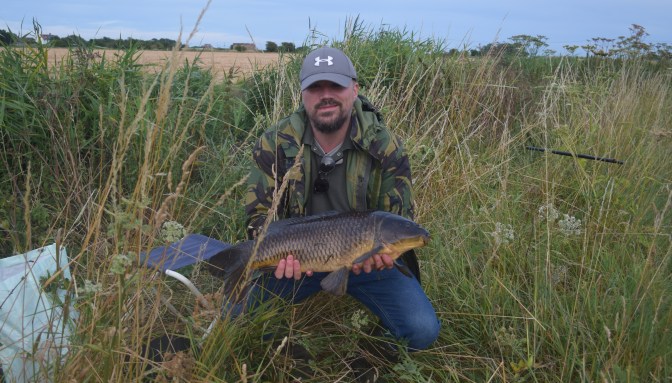
I took some photos, re-netted him and watched him in the shallows for a while before releasing him.

As I left that night, a solitary marsh harrier landed in a row of trees below the barley field. According to a pal, the bird is a regular here but this was the first time I’ve ever encountered it. As I passed, it let off a series of angry, bewildered hoots. I stared upwards and watched its silhouette disappear into the dusk. As I glanced back to the level of the stream, a series of bats roamed single file downriver, in the direction of a tree felled last February by Storm Eunice.
When I got to the track where I’d left my car, I looked back south. As I readjusted my eyes the fields seemed to run away from me, far away and into the coming gloam. I packed my tackle into the car and wove my way back to town.
I came back in early August but the carp had disappeared- for good, this time. To be honest, I was silly to return to the same spot.
Like the kestrel, you only get one shot out here.

Gallery of Photographs (Please click to view full sized images):
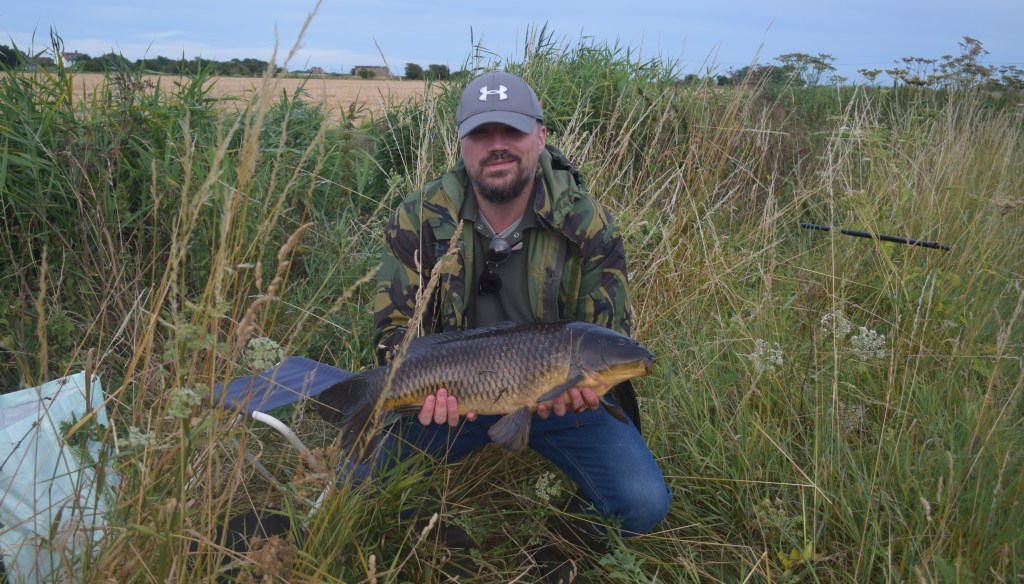

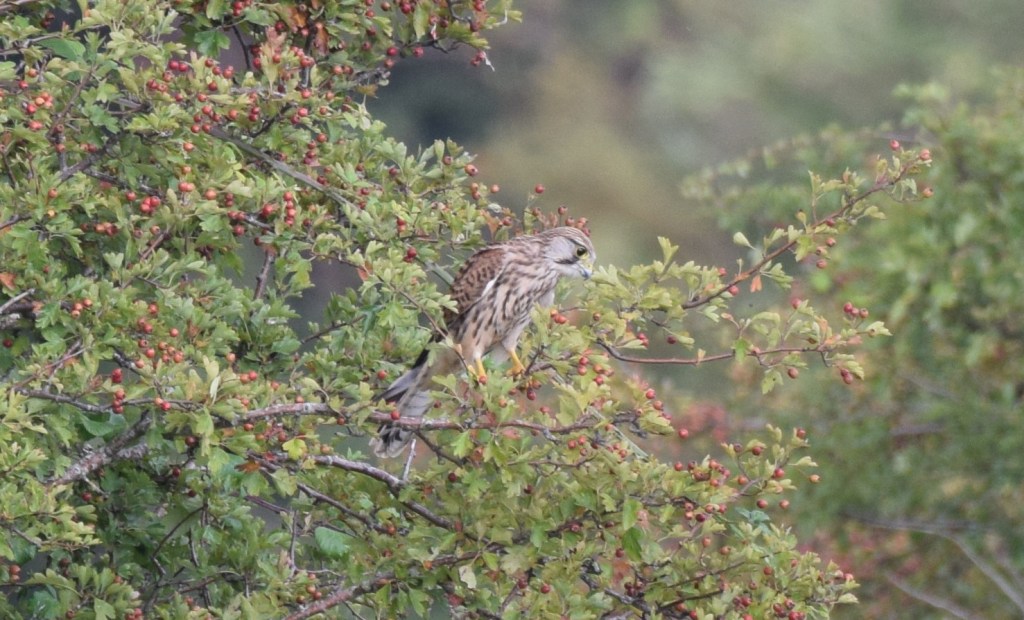


















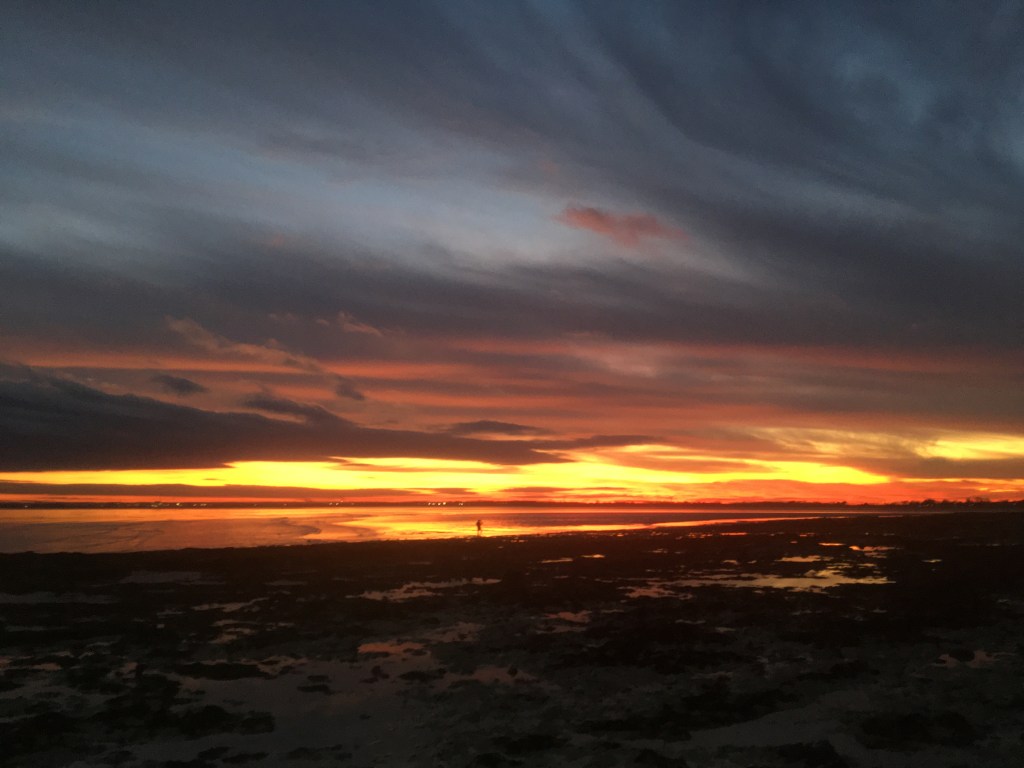
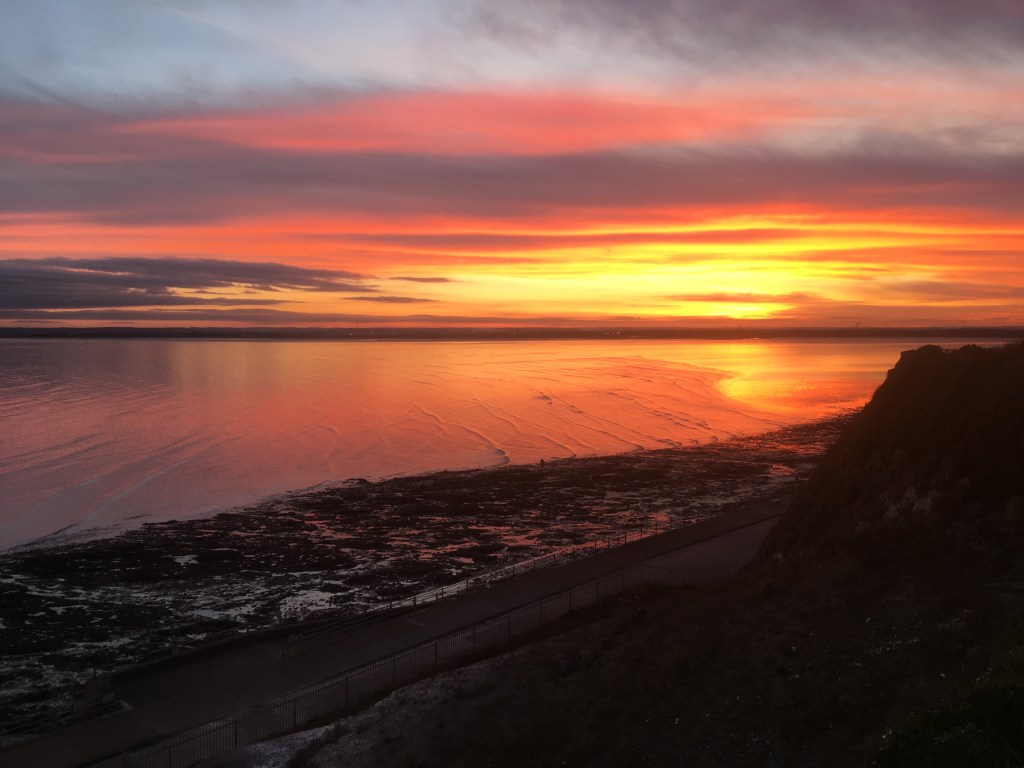
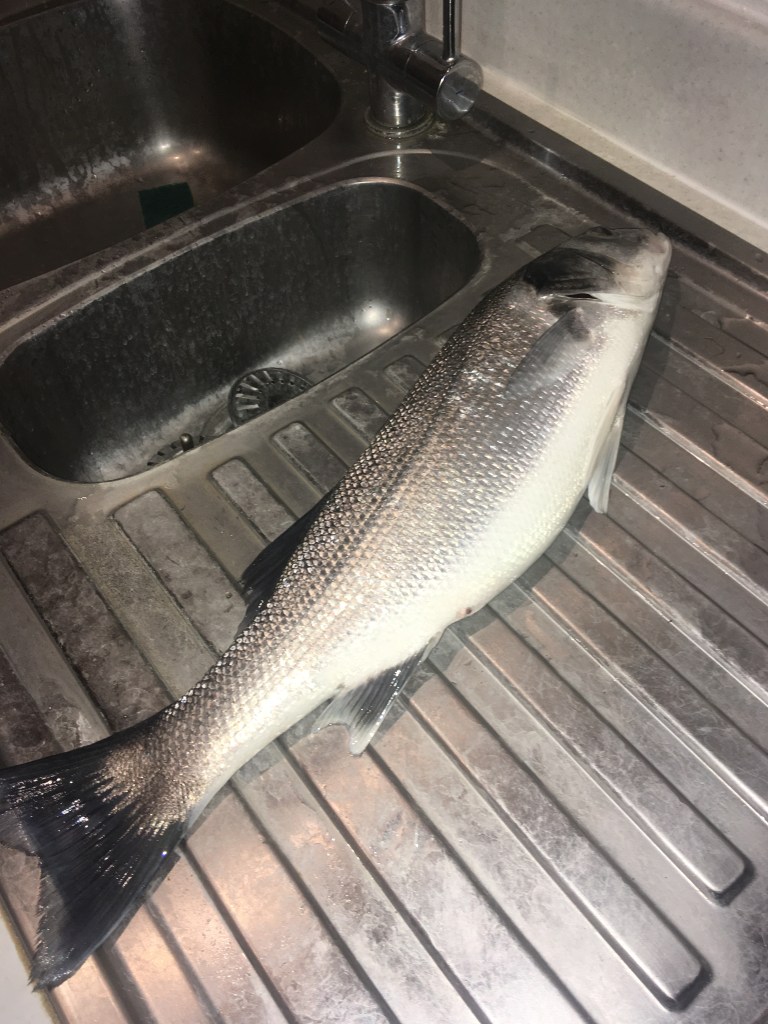
Ahhhhh.. that big wildie had colouration similar to one I had our of the RMC in the 1960s.
Another wonderful, evocative wLk through the East Kent marshes, thank you for sharing again.
LikeLiked by 1 person
Thanks, Tim. Lovely things, aren’t they? The RMC isn’t a million miles from here. I wonder if they’re a similar strain. Tree bark brown, those flanks… Best Regards, Gazza
LikeLike
P.S Tim! I must fish the RMC at some point, mate. It’s just that little bit off my beaten track and I never seem to make it. My next, big winter target might be Westbere for pike… I can’t make my mind up… Best Regards, Gazza
LikeLike
Simply wonderful. I’m staying in Chislet for a week. You know John Richardson? I met up with him on Friday.
LikeLiked by 1 person
Hello BB, Thanks, mate- Glad you enjoyed it.
John and I have been pen-pals since discovering each other’s blogs. It’s a bit like looking in a mirror; John fishes England’s finest fens- I fish our smallest. We haven’t got much proper fenland down in Kent but we’re way out east here and it’s so similar to Norfolk. We seem to get the same migrant birds landing at the same time of the year; similar landscapes and characters, too- Blokes with weed rakes etc (!)
God Bless, Gazza
LikeLike
It’s been a long time but well worth the wait Gareth. Another wonderfully evocative tale. Thank you!!
LikeLiked by 1 person
Hello Malcolm- Lovely to hear from you, mate. Very glad you enjoyed it! It won’t be long before we’re getting the pike rods out- Best Regards, Gazza
LikeLike
Lovely read Gareth 🙂 See you soon!
Nige.
LikeLiked by 1 person
Nice one, Nige! Yes, see you shortly, old son!
LikeLike
Yet another wonderfully evocative post Gazza. Those flatland Carp are wondrous fish to behold, flanks like carved mahogany and unlike any others I’ve ever seen. There are Mirrors present out there too. Not many but equally beautiful in appearance and colouration.
Take care & tight lines – Dyl
LikeLiked by 1 person
Thanks, Dylan- I’m just glad to have finally got one! It certainly made up for the lack of tench this season. Let’s get that pint soon and we can talk about those mirrors- All the best, Gazza
LikeLike
Gareth,
A really super read and one that lifted my spirits That’s the kind of writing that should be read to you while you enjoy a beer, listen and gradually immerse yourself. A podcast next then?
It certainly had a more beneficial effect on my well-being than the strong drugs have. Keep it up your epistles are much needed and liked. ATB, John
LikeLiked by 1 person
Hello John- That’s good to hear, mate!
I can honestly say that I’ve been more inspired to get back to some country writing, since our chat the other week. We’re lucky to know the land how we do.
I’m keeping my fingers crossed for you, re: a room with a view (pond/tree + a jay)- hopefully accompanied by a wickedly beautiful nurse or two!
I’ll be in touch soon- God Bless, Gazza
LikeLike
PS- A podcast is a terrific idea, John. You’ve got me thinking…
LikeLike
@media only screen and (max-width: 800px) {table.body .container{width: 100% !important;}td > h1.post-name{font-size: 28px !important;}}@media only screen and (max-width: 620px) {body,table.body{background-color: #fff !important;}table.body .wrapper{padding: 32px 24px !important;}table.body .content{padding: 0 !important; margin: 0 !important;}table.body .footer{padding: 0 0 32px !important;}table.body .container{padding: 0 !important; width: 100% !important; margin-top: 0 !important; margin-bottom: 5px !important;}table.body .main{border-left-width: 0 !important; border-radius: 0 !important; border-right-width: 0 !important;}table.body .header{margin-bottom: 40px !important;}table.body p{font-size: 18px !important;}table.body .btn{float: none !important; width: 100% !important;}table.body .btn table{width: 100% !important;}table.body .btn a{width: 100% !important; background: #f9f9f9 !important; font-size: 18px !important;}table.body .btn-primary a{background: #0675c4 !important;}.btn-bar-wrapper{text-align: center;}.btn-bar-wrapper td{width: 100% !important; display: inline-block !important;}.btn-wrapper,.btn-wrapper table.btn-anchor-wrapper{width: 100% !important;}.btn-anchor-wrapper a{display: block !important; margin-bottom: 12px !important;}}
LikeLiked by 1 person
Hello! That’s a lovely message, thank you. It might just be my laptop but your comment came with some kind of computer coding (!)- I nearly missed it but no matter, I got there in the end. Thanks again for your kind words,
Best Regards, Gazza
LikeLike
Wow, Dylan pointed me in your direction and what an amazing an evocative posting this was. I’ve spent most of my 75 years wandering the marshes of the Isle of Sheppey and can so easily identify with many of your thoughts – I so enjoyed reading them.
LikeLiked by 1 person
Hello Derek, Thanks for your kind comment, mate! Yes that’s a very similar environment; eerily beautiful. Be time for pike and short eared owls, soon. God Bless, Gazza
LikeLike
gareth ….. lovely, wonderful, evocative etc etc etc words nobody writes about me ho ho – but another beautiful piece to savour and re read . once again your work at the very least compares with anything produced elsewhere/ all the better methinks for the range of topics within and not the usual limited blurb advertising trade items congrats and keep your audience waiting many thanks ron
LikeLiked by 1 person
Hello Ron!
Lovely to hear from you and thanks for your very kind comment. It’s been a while; I was beginning to worry about you!
It’s very cold down here in east Kent, as it is everywhere at the moment. The marshes don’t offer much cover; I’m on the first day of my school holidays- three weeks off!
I’m just about to leave the house now and go off in search of a winter barn owl. I’ll post another blog before winter’s out, hopefully. Let you all know if I’ve caught a leviathan pike or snapped the ultimate barn owl shot,
God Bless and Merry Christmas, Gazza
LikeLike
thanks for your kind thoughts gareth. still plodding on – the lurgi hasn’t got me yet , unfortunately my fishing has been totally affected due to orthopaedic issues, both knees have got by on steroid jabs and light gym maintenance and swimming, four years ago a diagnosis of hip tendinopathy ( basically not ‘curable’ and viciously painful ) has turned out to be incorrect and now diagnosed as knackered end stage hip arthritis requiring replacement in 12-18 months, i have been out for the odd few hours on totally flat fishing stations, however my reading and internet viewing has increased substantally all round particularly fishing – plus other interests, needless to say your blog- amongst many others is an absolute lifesaver,,,, long may it last, all the best ron
LikeLiked by 1 person
I had covid last spring, Ron; what a negative little beast that was! I was so glad to get over it. I only took one week off work- I should have stayed off a little longer but the tests were clear by then and I wanted to get out. When I went back, the exhaustion was ridiculous. Hardly able to shift about; it really knocked me sideways but by summer time, I was lifting weights/fast walking etc. And going for a dip in the ocean! It’s only a few minutes’ walk from my flat. Mind, the year’s first plunge- late last spring- was a shock. My system was weakened by covid for some time. I remember going into the sea later, in July and feeling ‘fully healed’ as it were.
I understand you reading more, mate. Fishing has some smashing literature. My favourites are BB and Fred J Taylor. When I receive encouragement, it makes me want to pick up the pen again. My winter piking has begun in earnest. I’m after something I saw last summer- a pike striped like a tiger. We shall see. In any case, you’ve motivated me to pen a piece before winter’s out. God Bless, mate- Gazza
LikeLike
cheers gareth i see you reached the dizzy heights of ‘fallons’ articles …. you weren’t inferior to anything in there. your many groupies can’t be wrong !!!
LikeLiked by 1 person